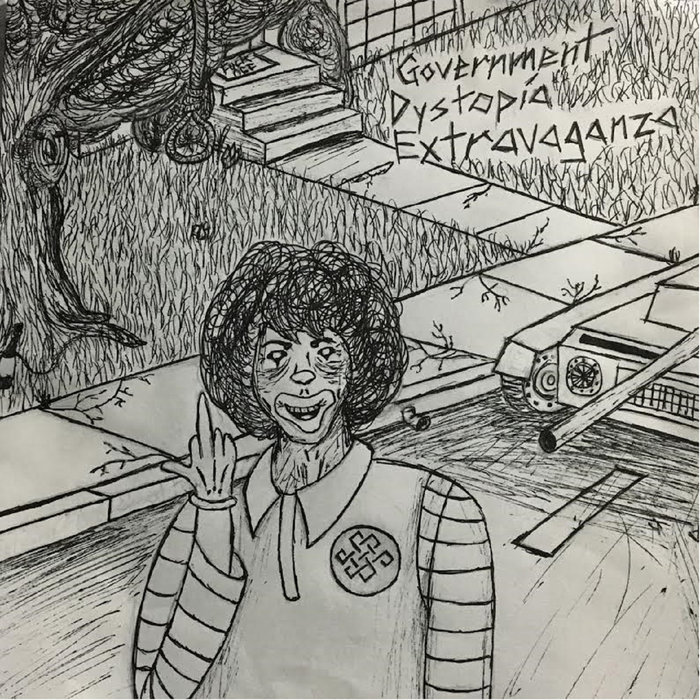Dystopian narratives have long captured the imagination, painting a vivid picture of societies teetering on the brink of collapse or authoritarian rule. One cannot help but ponder: What exactly is the role of the government in these dystopian realms? Often depicted as the architect of societal despair, the government in dystopian settings serves multiple functions, each serving to illustrate a critical commentary on power, control, and the human spirit.
To begin with, let’s explore the function of governance in maintaining control over the populace. In a typical dystopia, the government is not merely a passive participant but an omnipotent force wielding authority with an iron fist. Surveillance is a cornerstone of such regimes. Citizens are often stripped of their privacy, their every move monitored by an elaborate network of cameras or informants. This creates an atmosphere of fear and mistrust that ensures compliance to the draconian laws imposed upon them.
The legislation enacted by these governments frequently aims to suppress freedom of expression and individuality. Censorship becomes commonplace, with dissenting voices silenced under the guise of national security or societal harmony. Literature, media, and art are curated to align with governmental doctrine, stifling creativity and critical thought. This suppression serves a dual purpose: it quashes potential revolts while fostering a homogeneous culture that promotes the regime’s ideology.
Entwined with the idea of control is the concept of propaganda. In dystopian worlds, the government has a vested interest in shaping the narrative. Through news manipulation and the strategic dissemination of information, these regimes create an alternate reality where their reign is deemed essential and inescapable. Citizens are indoctrinated with the belief that their societal structure is the pinnacle of civilization, making any attempts at reform appear treasonous. This relentless manipulation of truth effectively clouds public perception, making it increasingly difficult to challenge the status quo.
But what motivates these governments to exert such a tight grip on power? To answer this question, one must consider the common trope of fear and instability. Often, dystopian settings emerge from a backdrop of civil unrest, economic collapse, or environmental disaster. In the wake of chaos, a government may rise, promising safety and order to a scared populace. However, this promise is often a guise for subjugation. The government capitalizes on fear, cultivating an atmosphere where control is perceived as safety—a chilling irony.
The enforcement of conformity through laws and regulations also plays a pivotal role in dystopian governance. Egregious punishments are often meted out for non-compliance, establishing a comprehensive system of deterrence. For instance, in many dystopian tales, even the slightest deviation from prescribed behavior can result in severe consequences, such as imprisonment or execution. This draconian approach reinforces the notion that dissent is not only futile but perilous.
Moreover, control manifests through economic stratification and resource allocation. In dystopian societies, the government frequently dictates access to essential services such as healthcare, education, and employment opportunities. Those who conform and show allegiance to the regime often reap the benefits, while dissenters are left marginalized. This economic disparity further entrenches the regime’s power, as the population becomes dependent on the resources that the government doles out sparingly.
In contrast to this oppressive structure is the concept of rebellion, an essential theme in dystopian literature. The government, while all-powerful, is seldom unchallenged. The role of the government as oppressor breeds resistance, and characters often embody the struggle against overwhelming odds. These protagonists frequently arrive at a crucial moment of revelation, recognizing that blind compliance is a betrayal of their humanity. Such narratives serve to inspire readers, igniting hope that resistance is not only possible but inevitable.
Furthermore, the role of the government in a dystopian narrative often extends beyond mere oppression; it also reflects the complexity of human governance. Governments, flawed as they are, can serve as platforms for both tyranny and welfare. In some stories, individuals within the government may grapple with their complicity, wrestling with moral dilemmas that question the very fabric of their authority. This introduces an important dichotomy: can the government be reformed, or is it irredeemably broken?
Yet, despite the foreboding tone of these dystopian tales, the portrayal of government serves a practical function. It acts as a cautionary tale, prompting discourse on the fragility of democracy and the importance of vigilance. The intricate dance between control and rebellion provides fertile ground for examining contemporary issues surrounding governance, accountability, and civil rights. As readers delve into these narratives, they are encouraged to reflect on their own societal structures, challenging the complacency that often accompanies stability.
As we navigate through these complex layers, we arrive at a poignant challenge: What responsibilities do citizens have in the face of an overwhelming government? The role of government in dystopia raises questions about individual agency, societal obligations, and the power of collective action. Will we stand idly by while our freedoms are eroded, or will we rise to challenge the forces that seek to suppress us? This existential inquiry does not merely resonate within the confines of fiction; it reverberates across our own realities.
In conclusion, the role of the government in dystopian societies is multifaceted, serving as both the architect of oppression and the catalyst for resistance. These narratives urge us to confront uncomfortable truths about governance, power, and our own complicity. Through vivid storytelling, dystopian literature offers a magnifying glass to our modern world, challenging us to ask critical questions about the nature of authority and the resilience of the human spirit.
